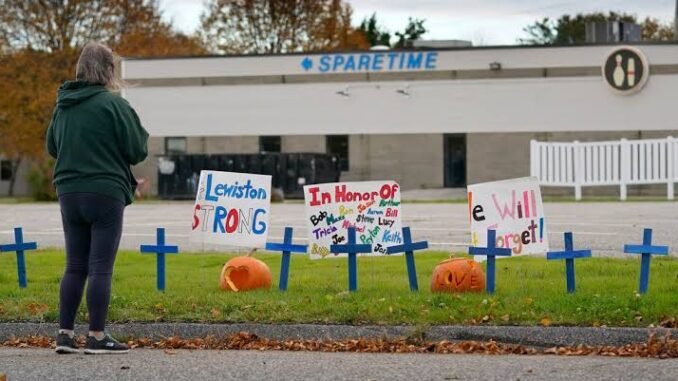
Residents of Maine, whose sense of security was rocked by the state’s bloodiest mass shooting last year, planned to commemorate the day Friday in both large and small ways, including a planned memorial ceremony, with flags lowered throughout the state. The murders of 18 people by an Army reservist in Lewiston brought home the sobering fact that gun violence occurs everywhere in the nation, even in states that are known for having low crime rates. The city’s hockey rink, where there were to be quiet times during the shootings, was anticipated to host the largest of the crowds.
At a gathering with victims and survivors last week, Elizabeth Seal, using a sign language interpreter, stated that community has become a crucial part of the grief process since the shootings. Joshua Seal, Seal’s spouse, lost his life in the shootings. According to Seal, “Once justice is served, I feel maybe we can start that process of healing,” as he translated. “But in the meantime, we’re going to stay ‘Lewiston Strong.'”
Seal recently started the legal process of suing the U.S. Army for allegedly failing to take action to stop Robert Card, a 40-year-old reserve, along with dozens of other survivors and victims’ families. On October 25, 2023, a bar and grill hosted a cornhole competition and a bowling alley where shootings took place. Two days after Card committed suicide, his body was discovered. The Just-In-Time Recreation bowling alley, where the shooting started, will close for the day on Friday so that employees may spend time with their families, according to Justin Juray, the venue’s owner. As the day drew near, he remarked the week had been difficult and Friday would be especially so.
“We don’t need work to add to their stress,” he stated. Six months after the shooting, in May, Juray and his spouse, Samantha, reopened the bowling alley. Eight people were killed there, including two employees. The state’s victim services director reported that around 130 persons were present at the two locations overall. Along with the 18 fatalities, there were 20 non-shooting injuries and 13 gunshot wounds. According to the gunman’s relatives and fellow Army reservists, he was experiencing a mental breakdown. Following the massacre, the Maine Legislature enacted new gun control legislation that strengthened the state’s “yellow flag” law, made it illegal to transfer firearms to prohibited individuals, and increased financing for crisis mental health services.

Be the first to comment